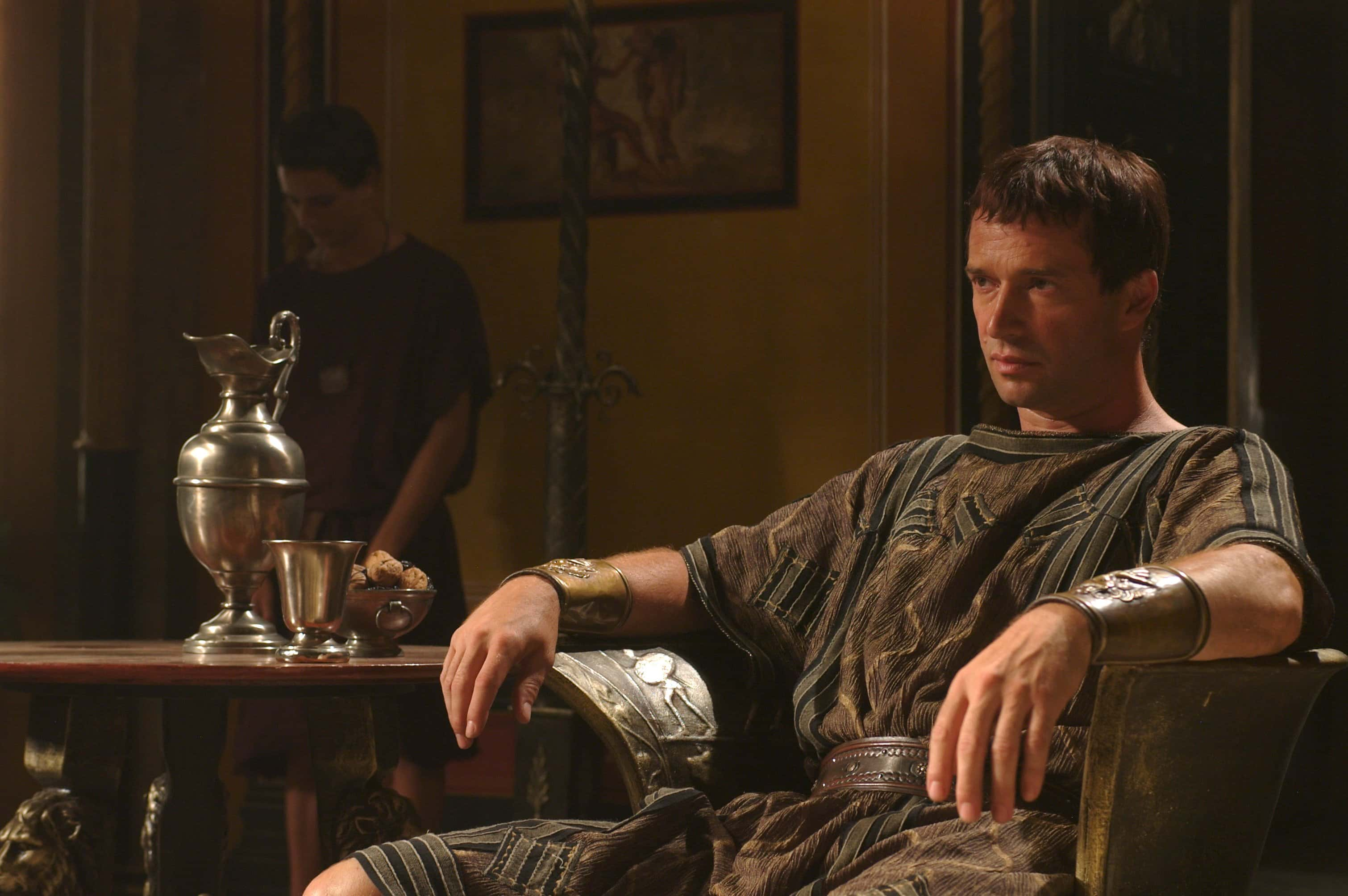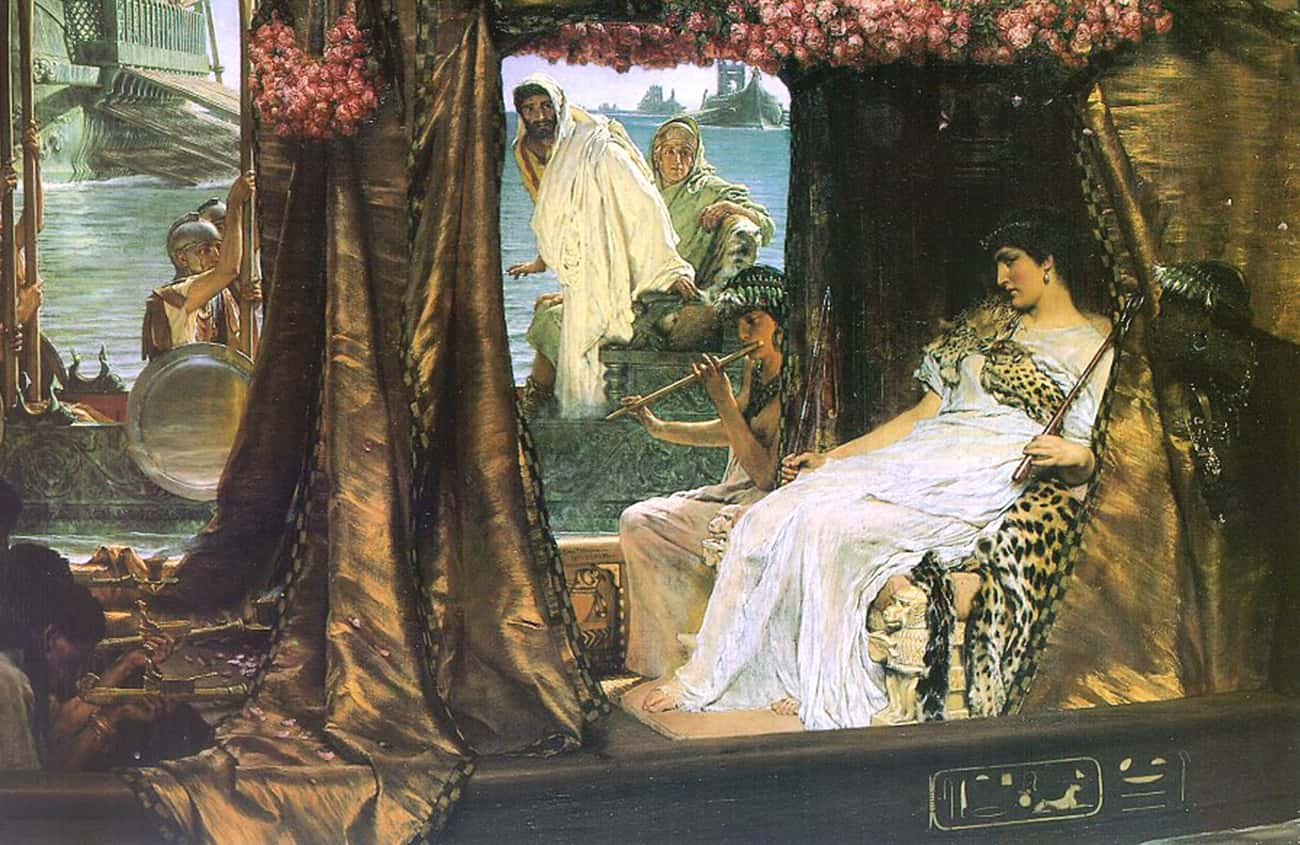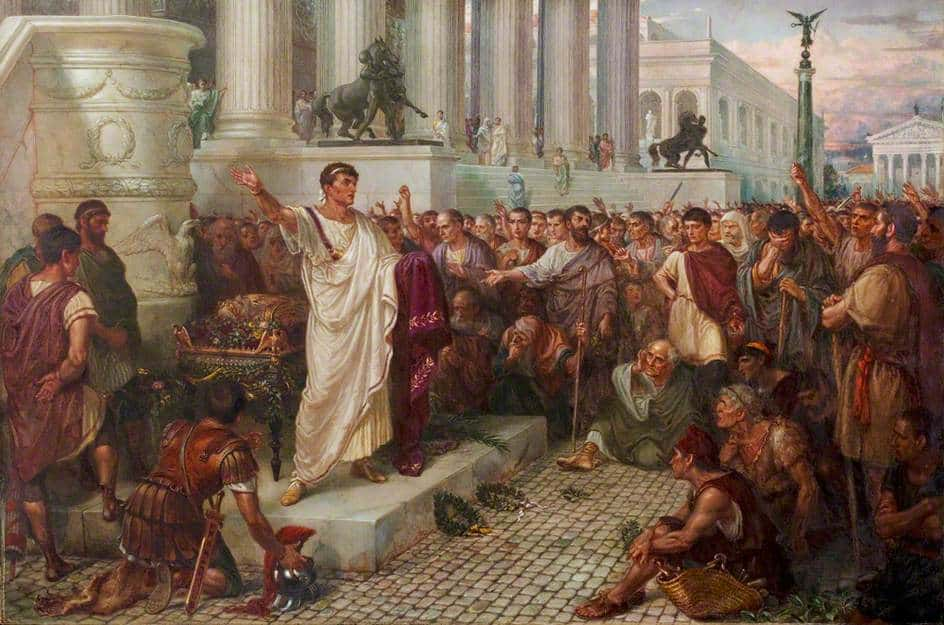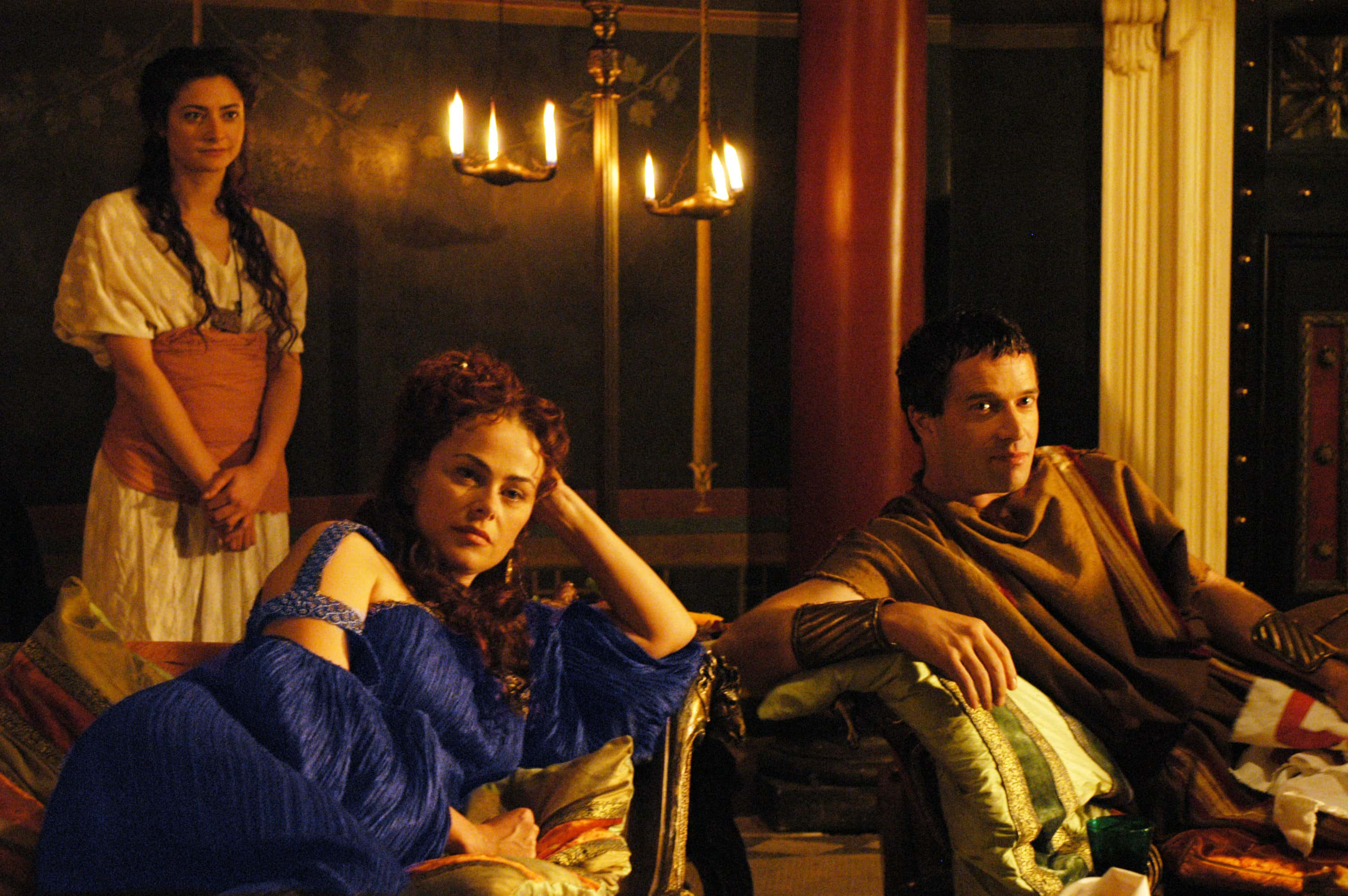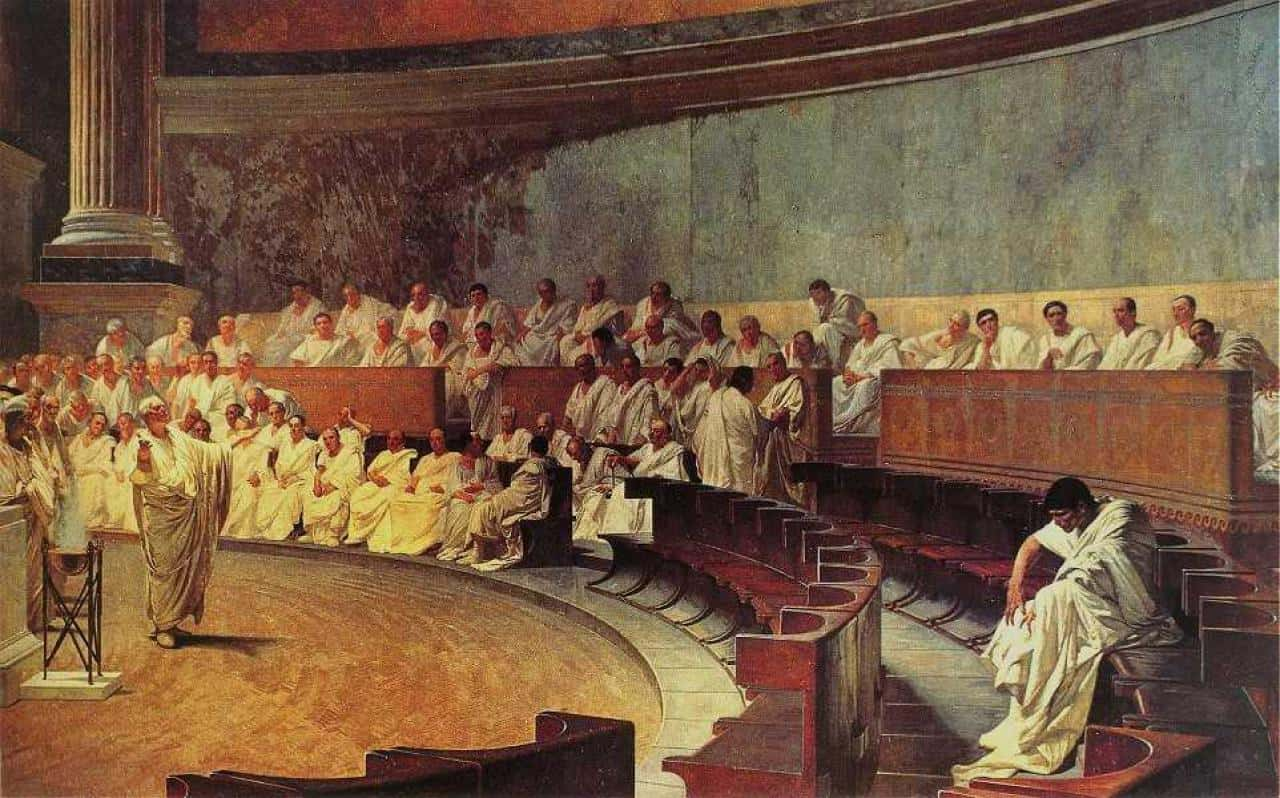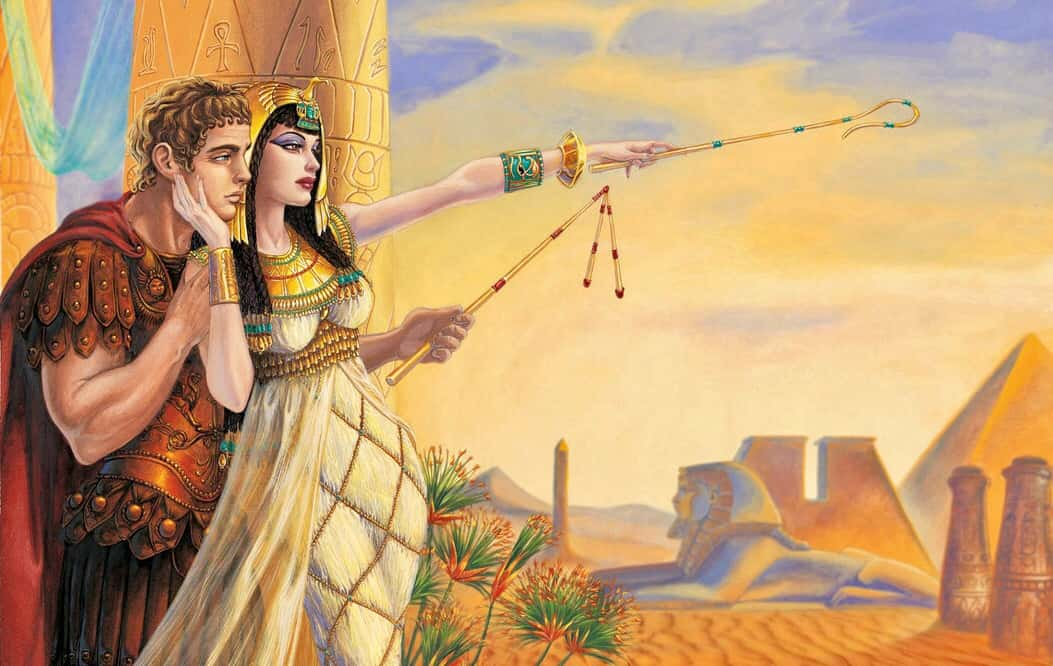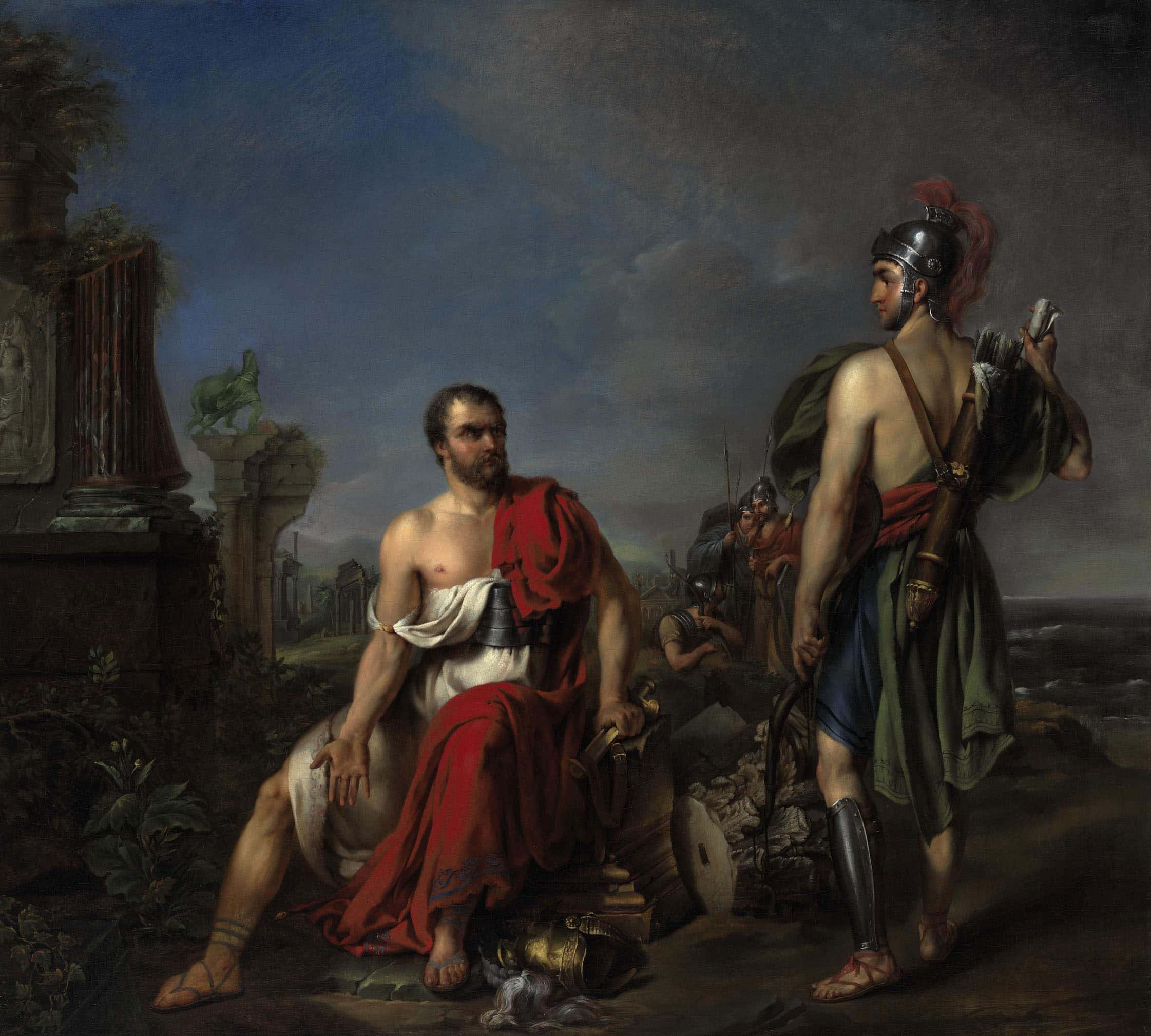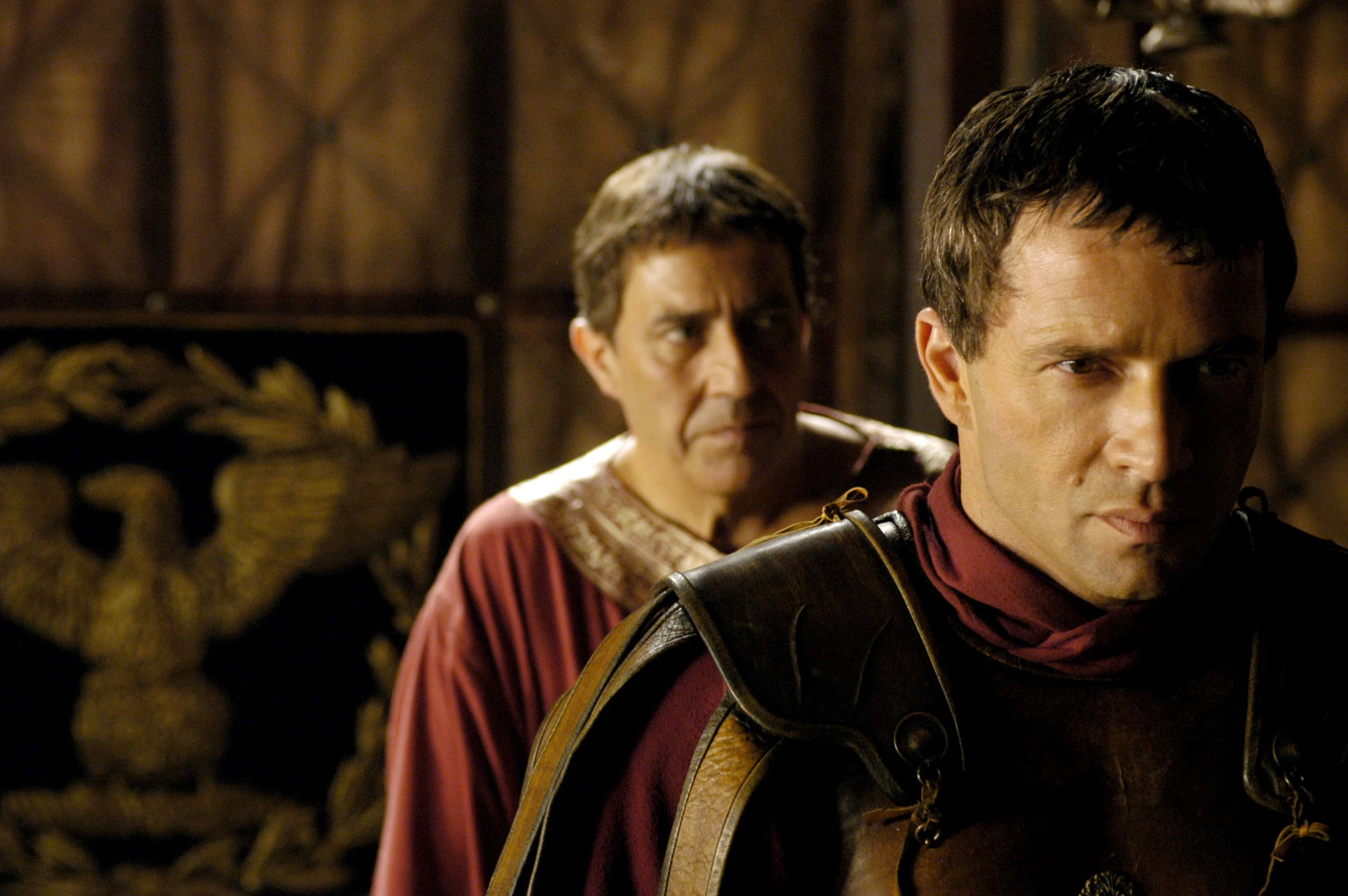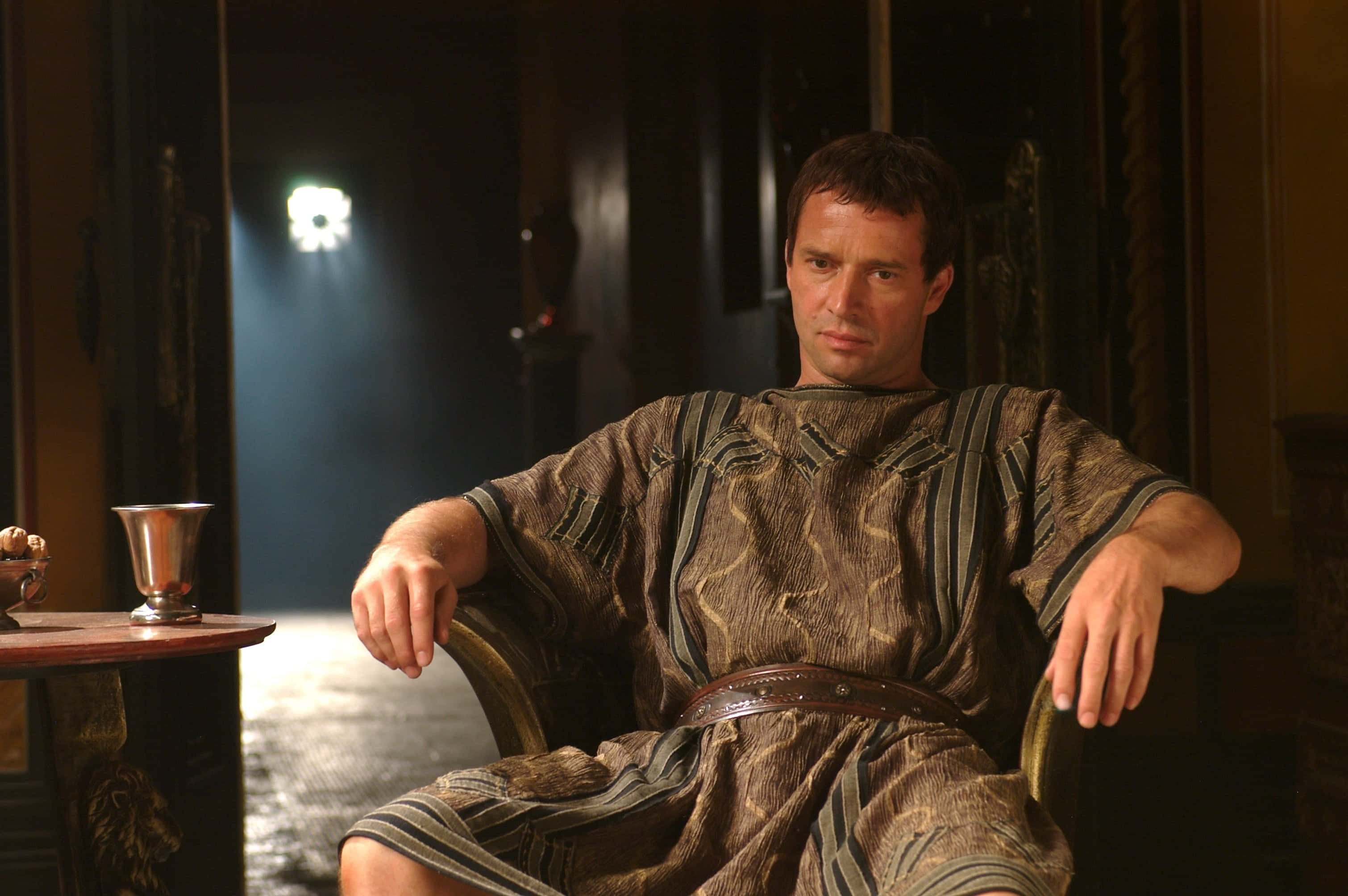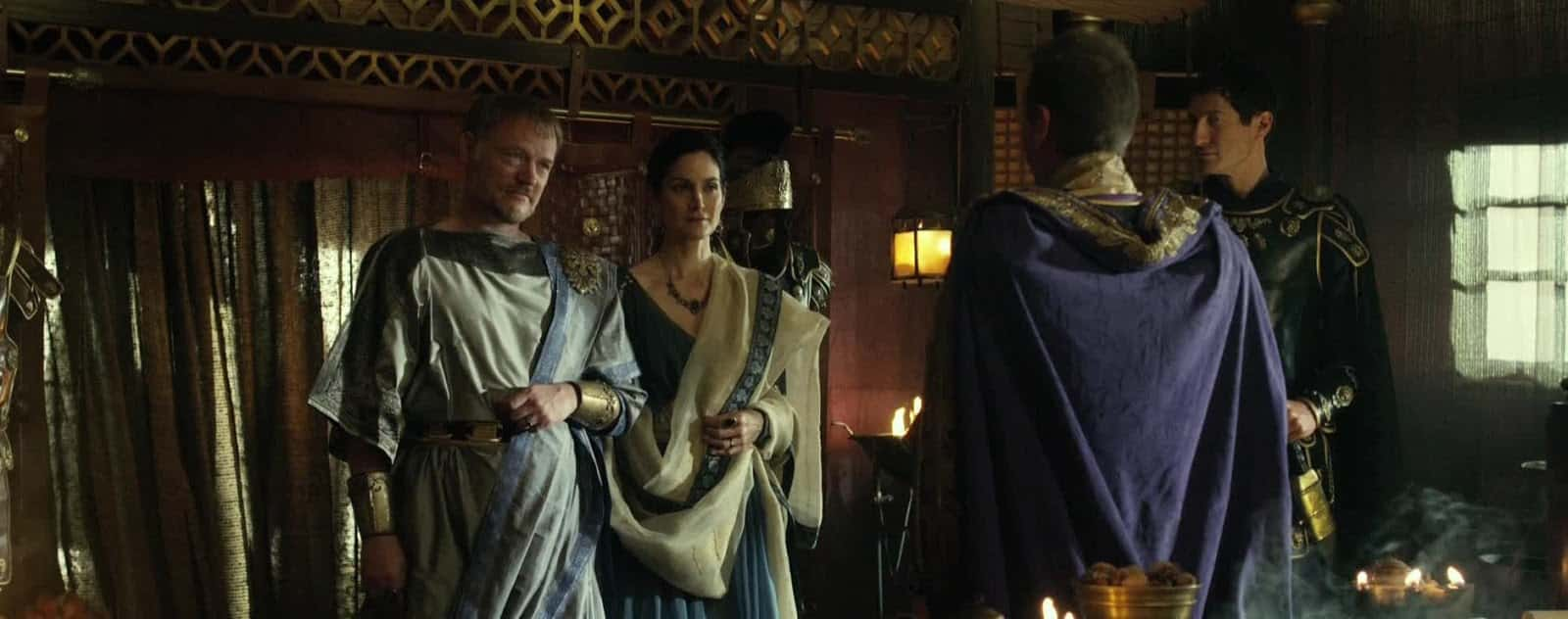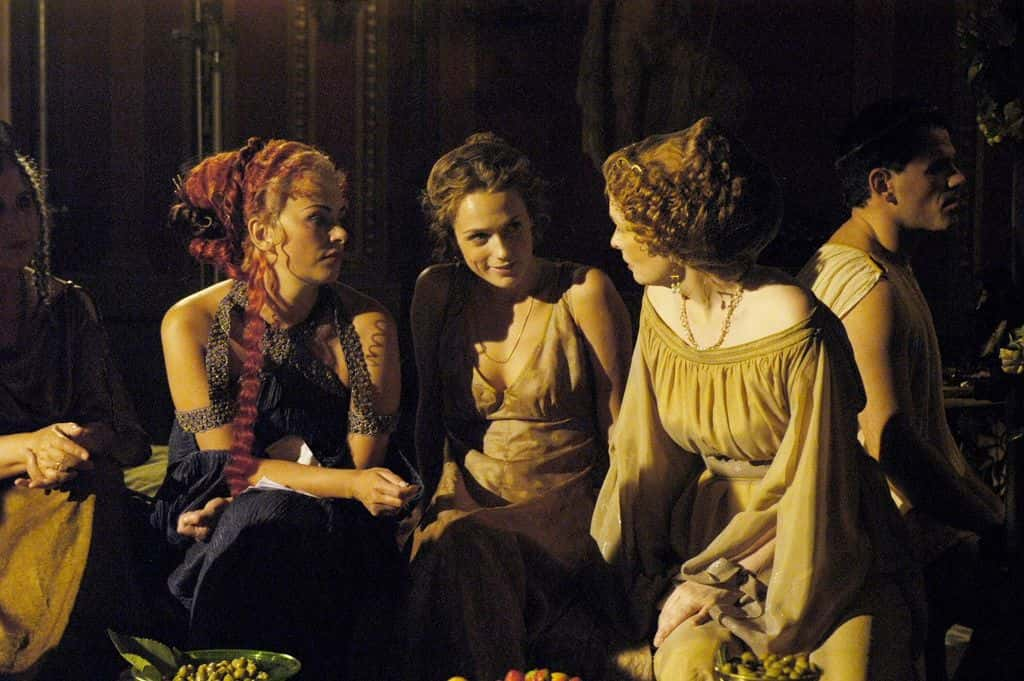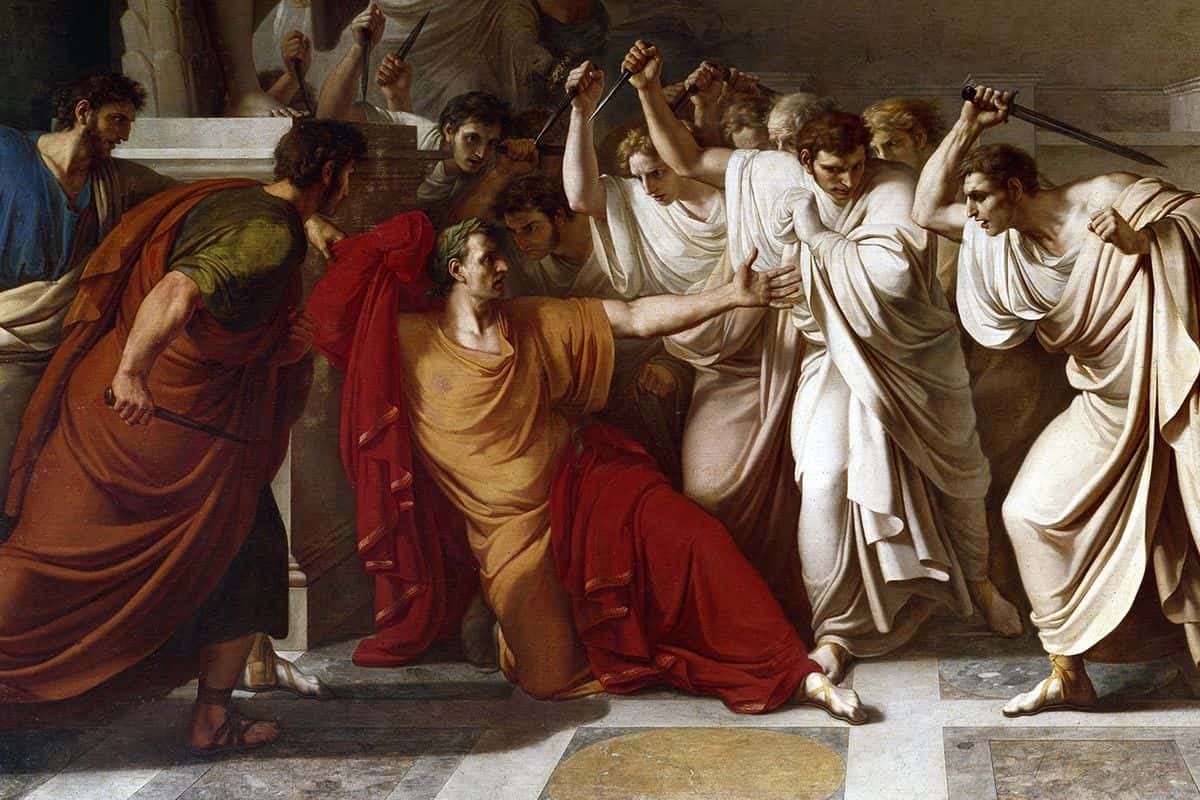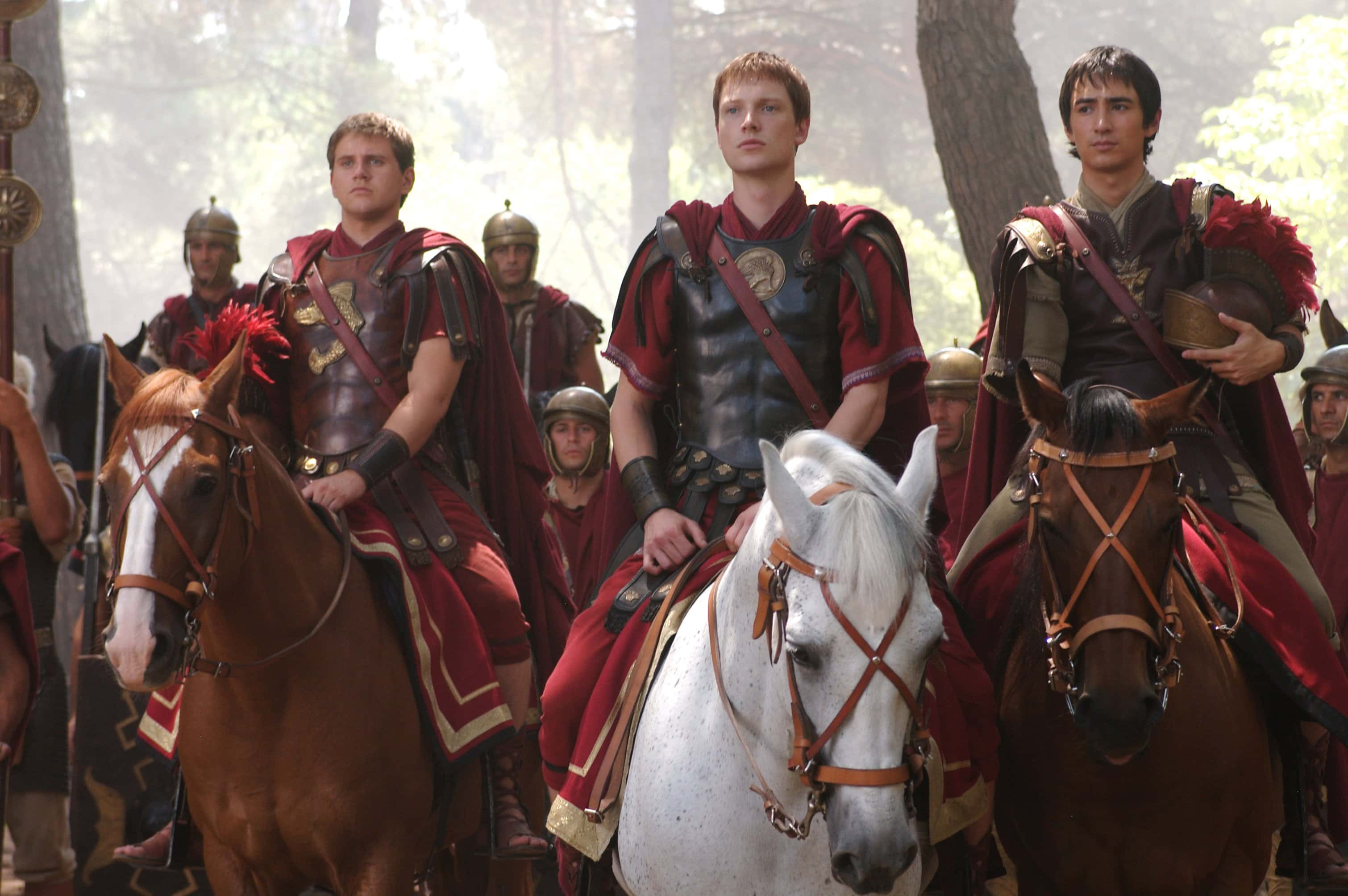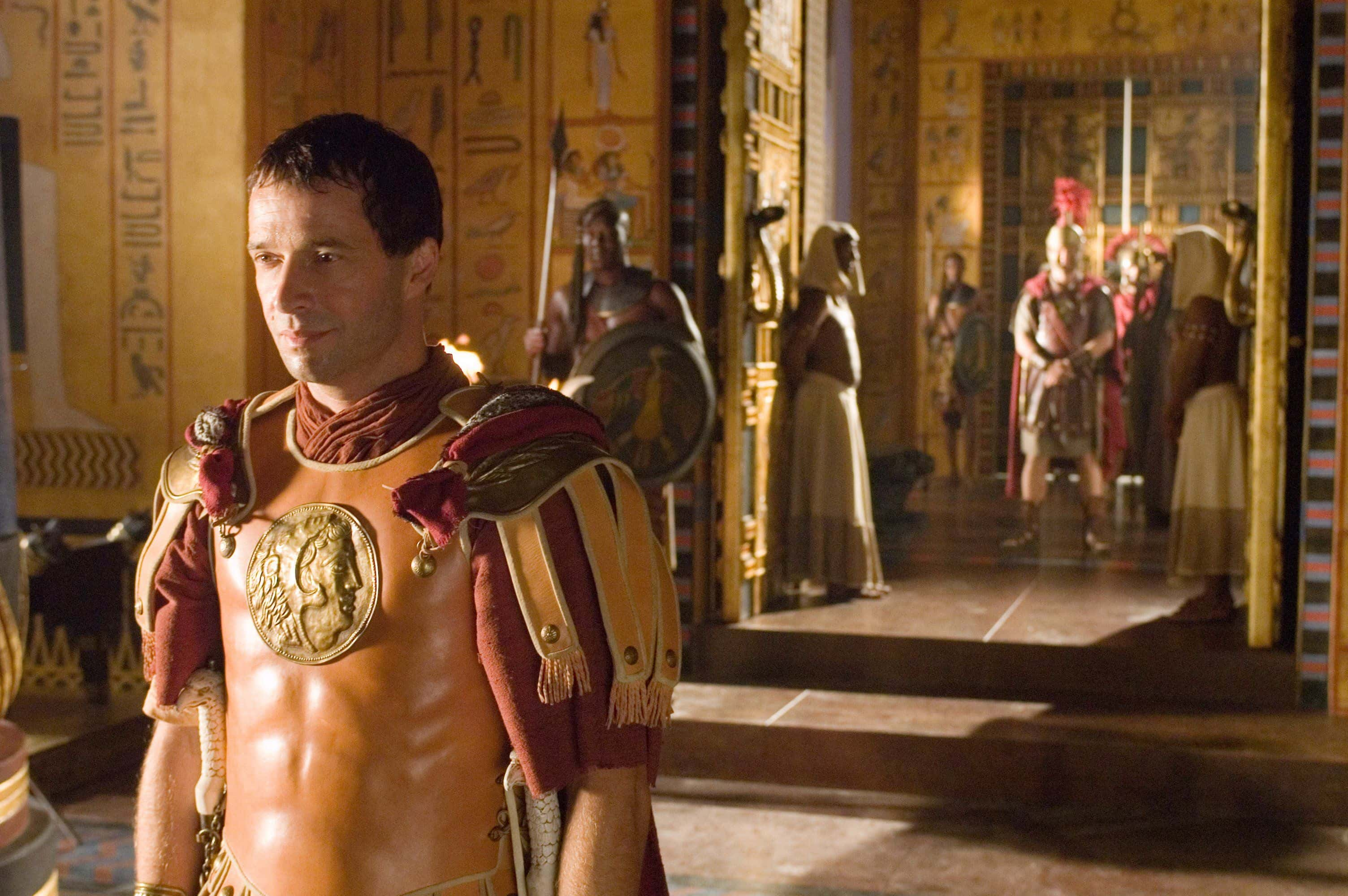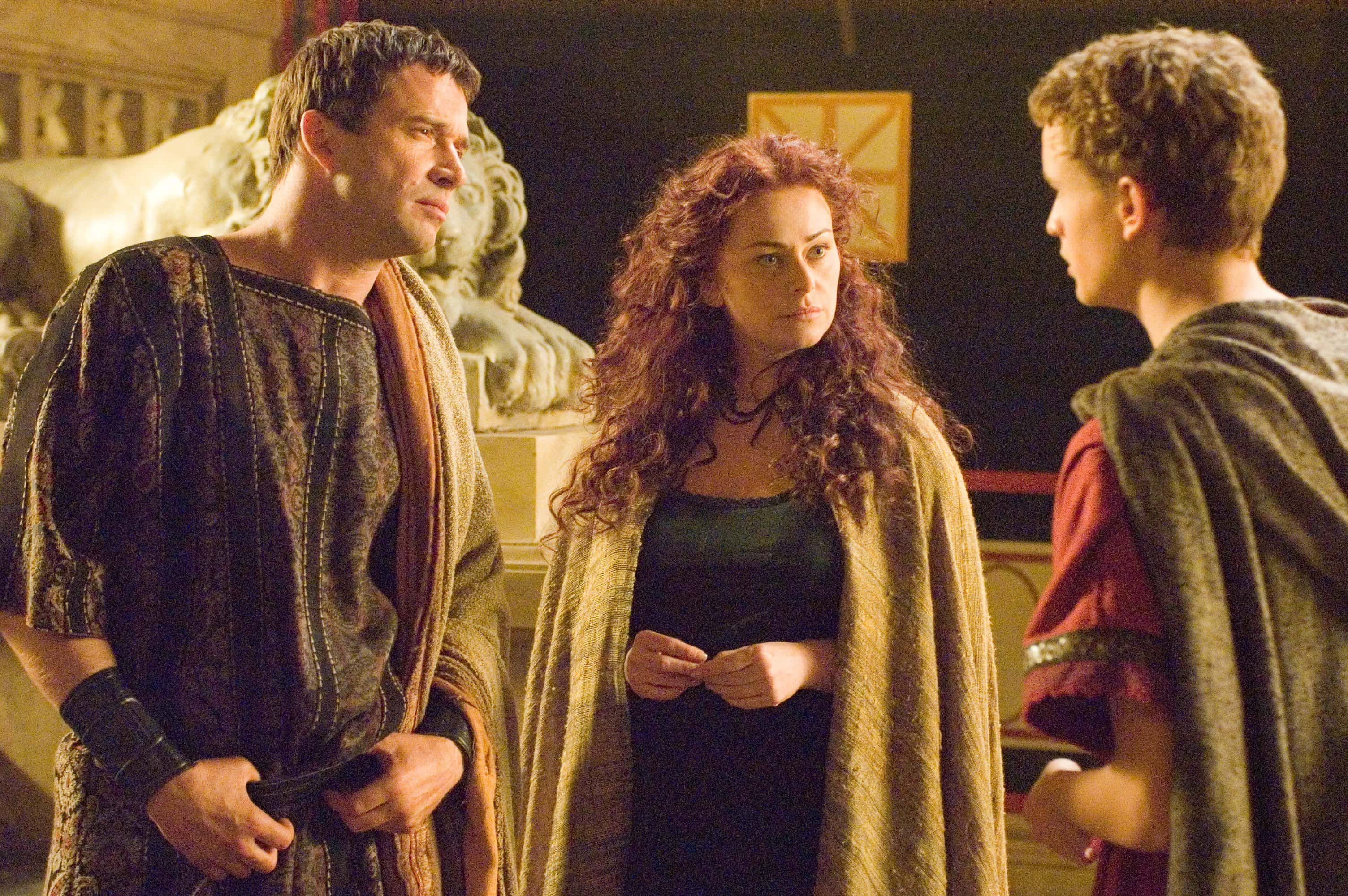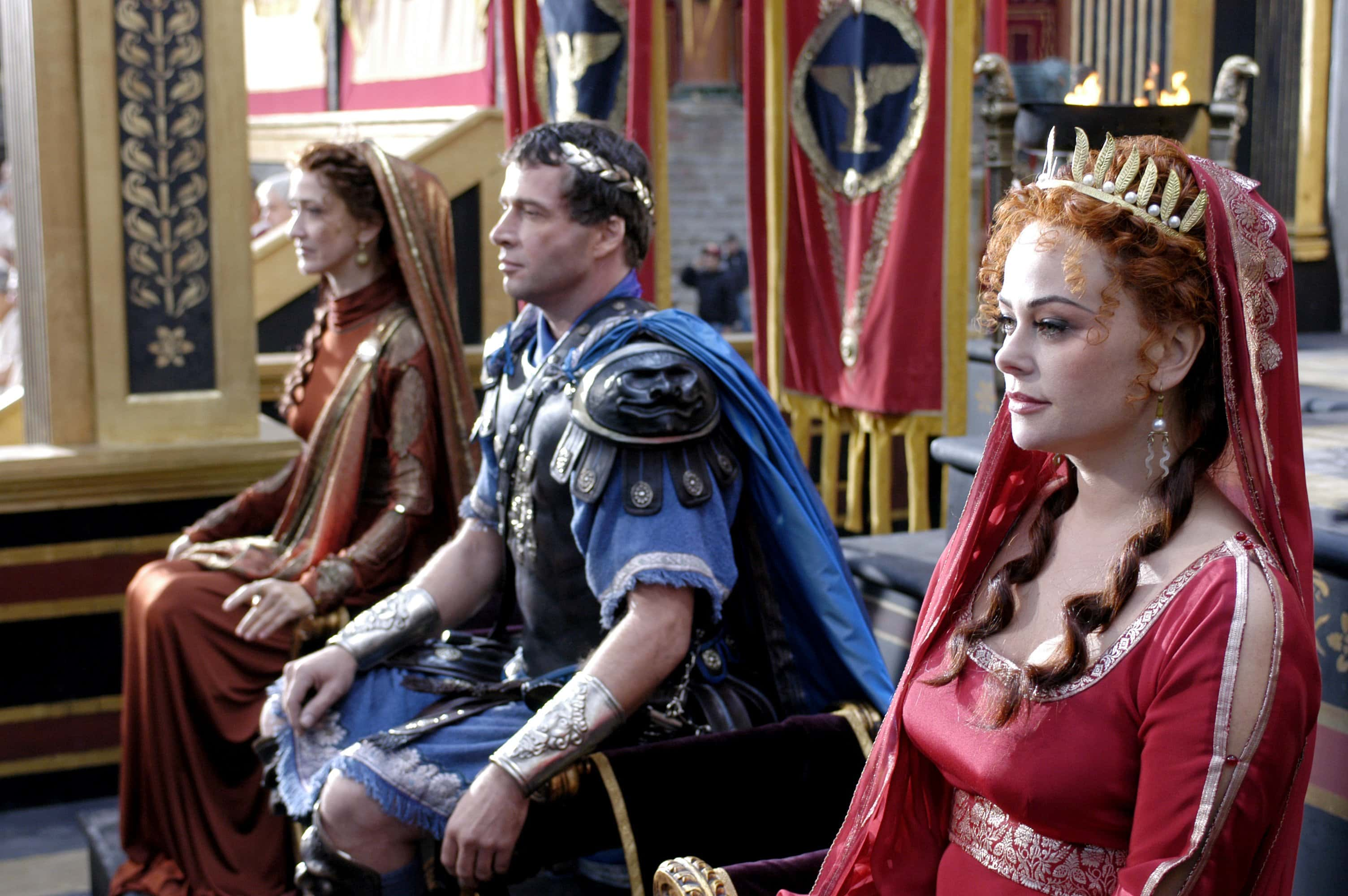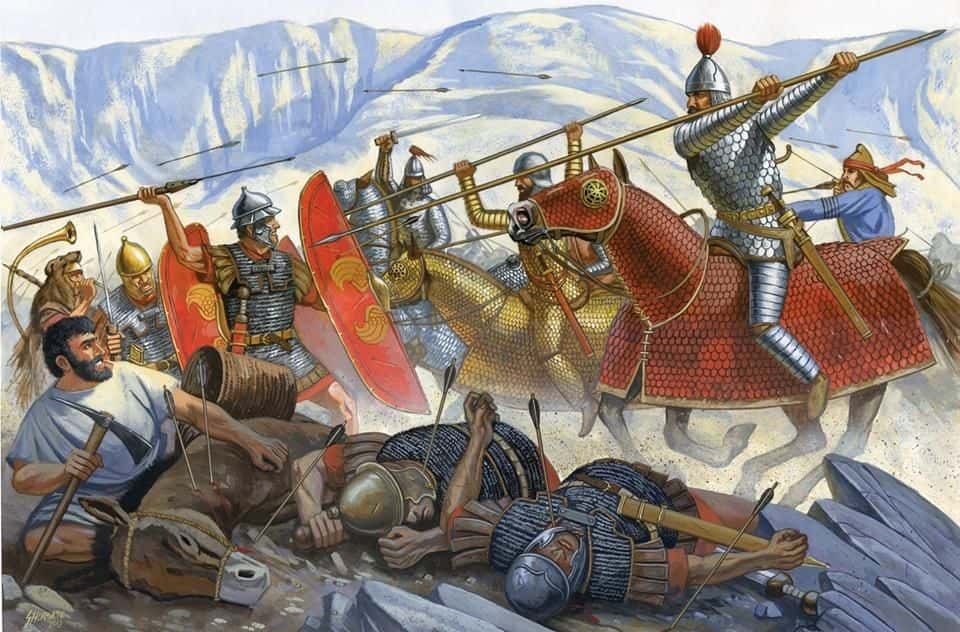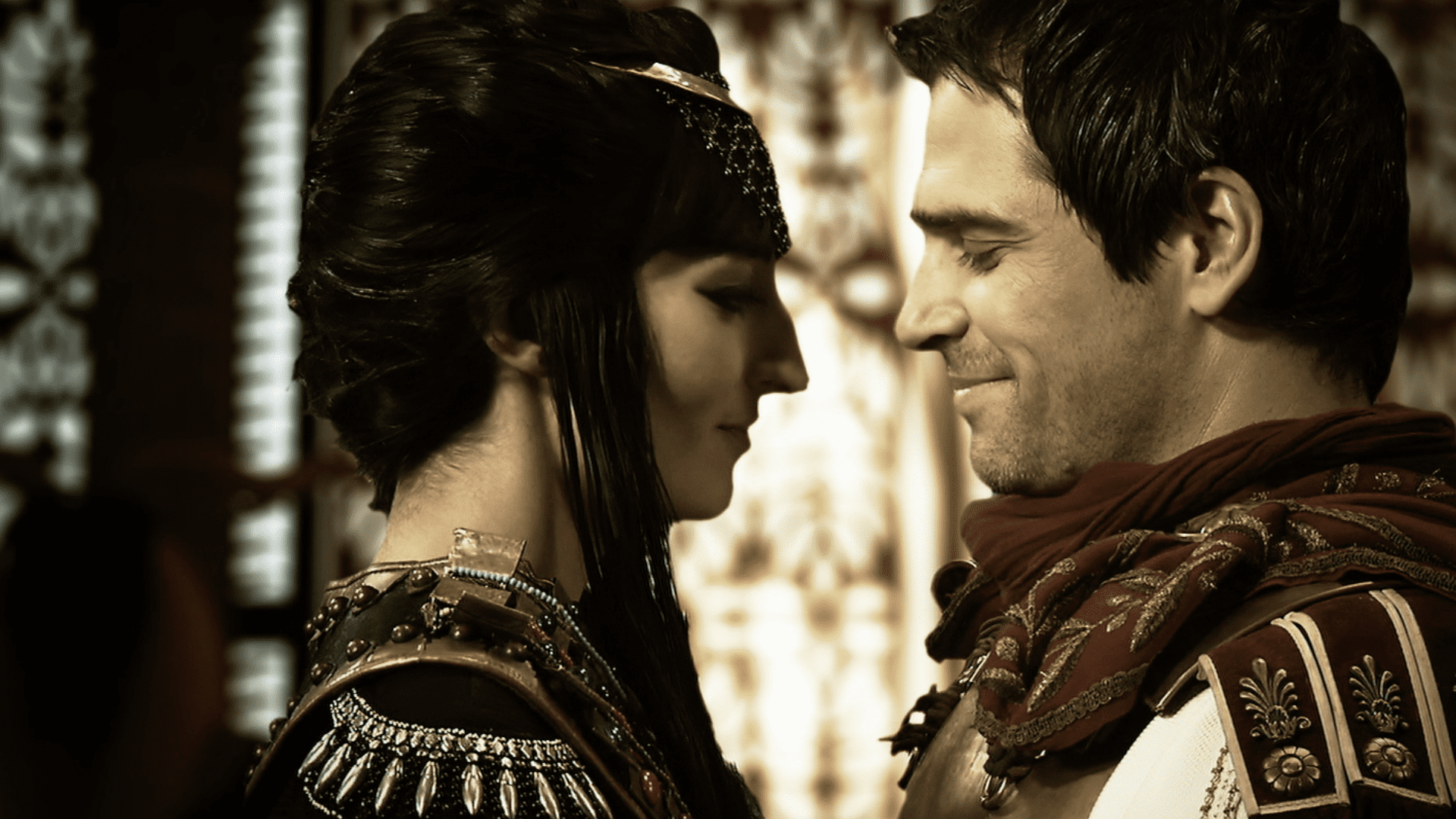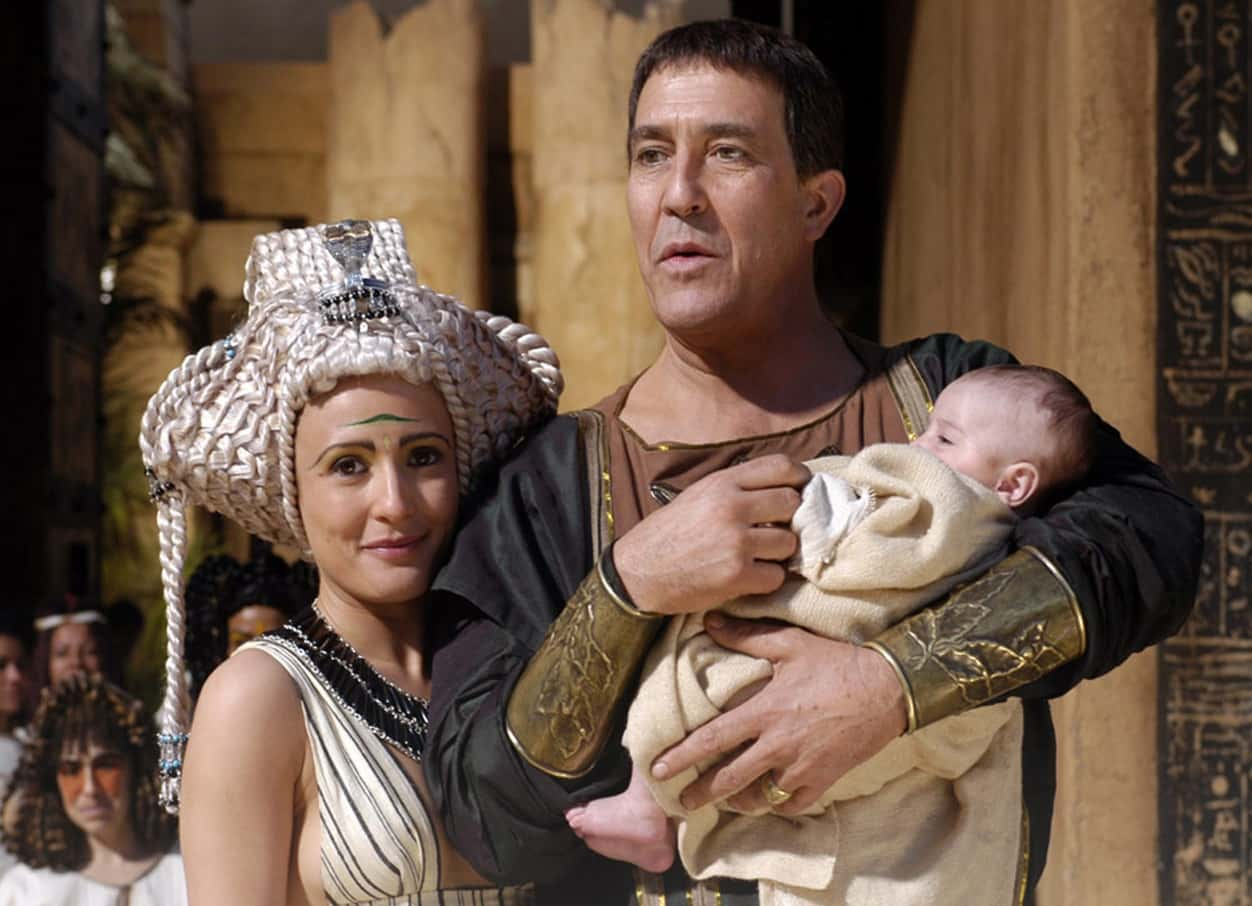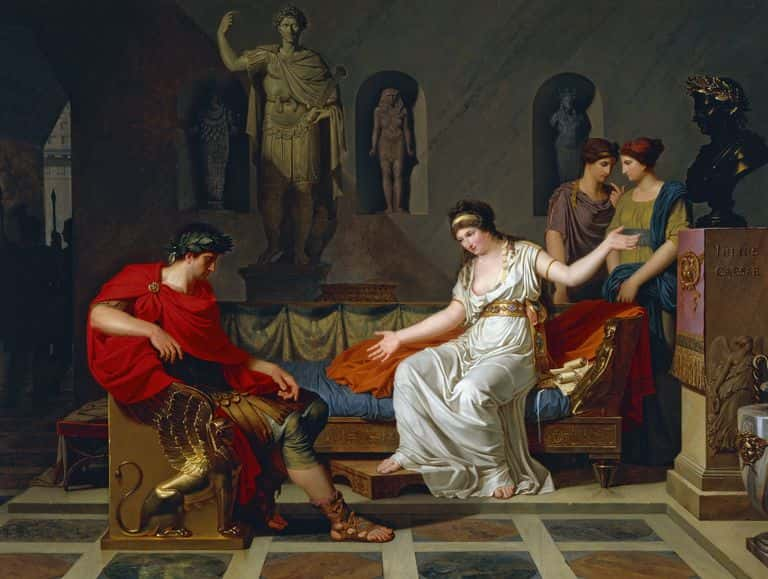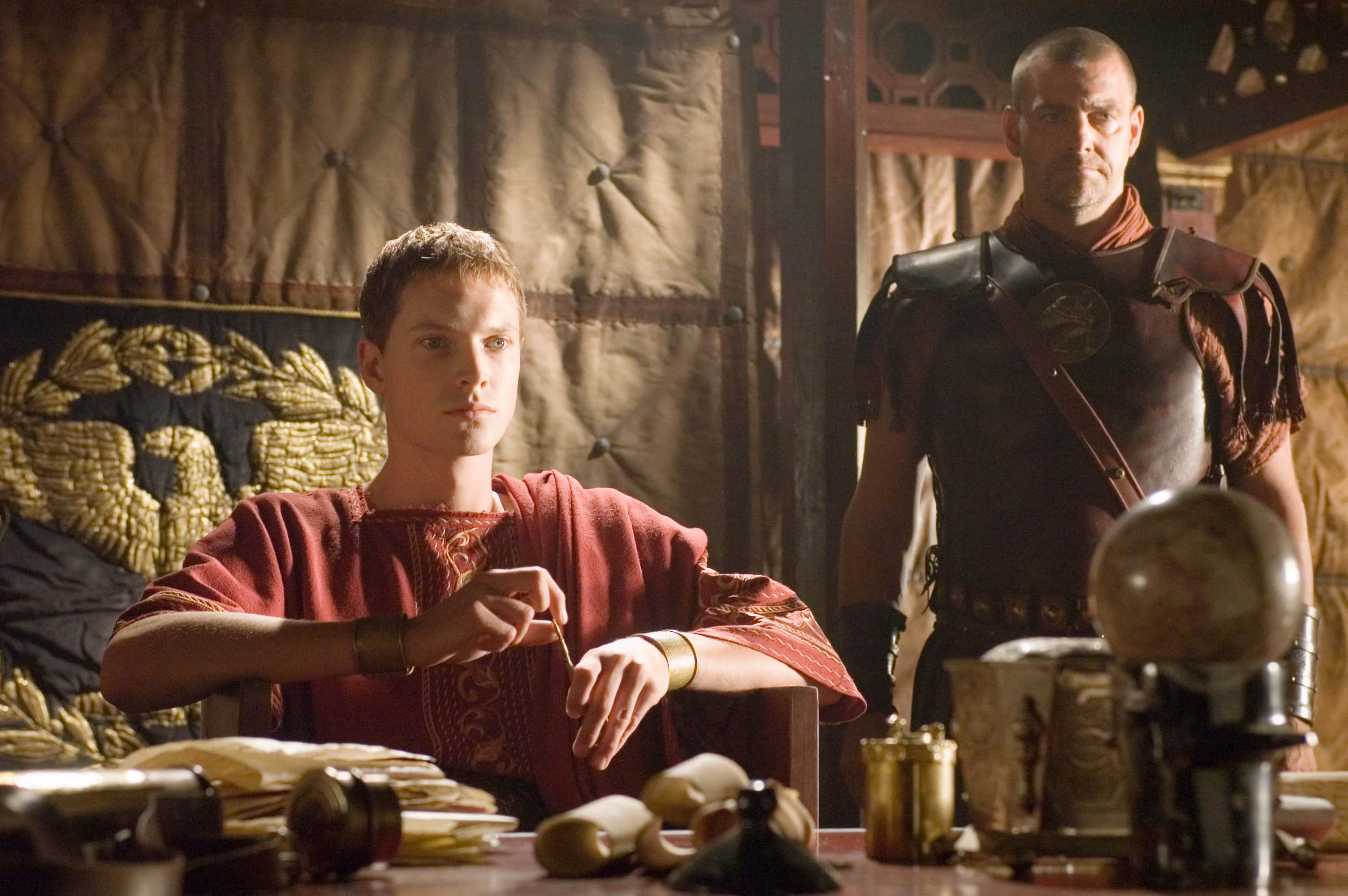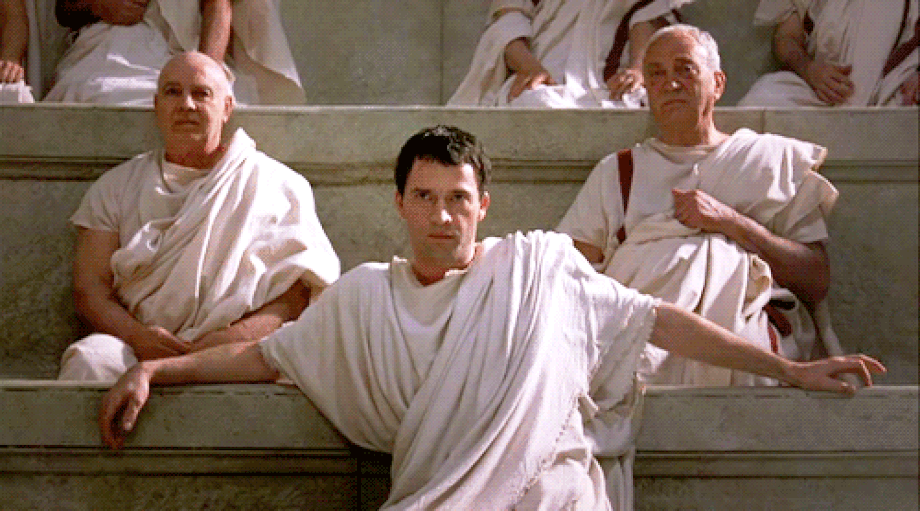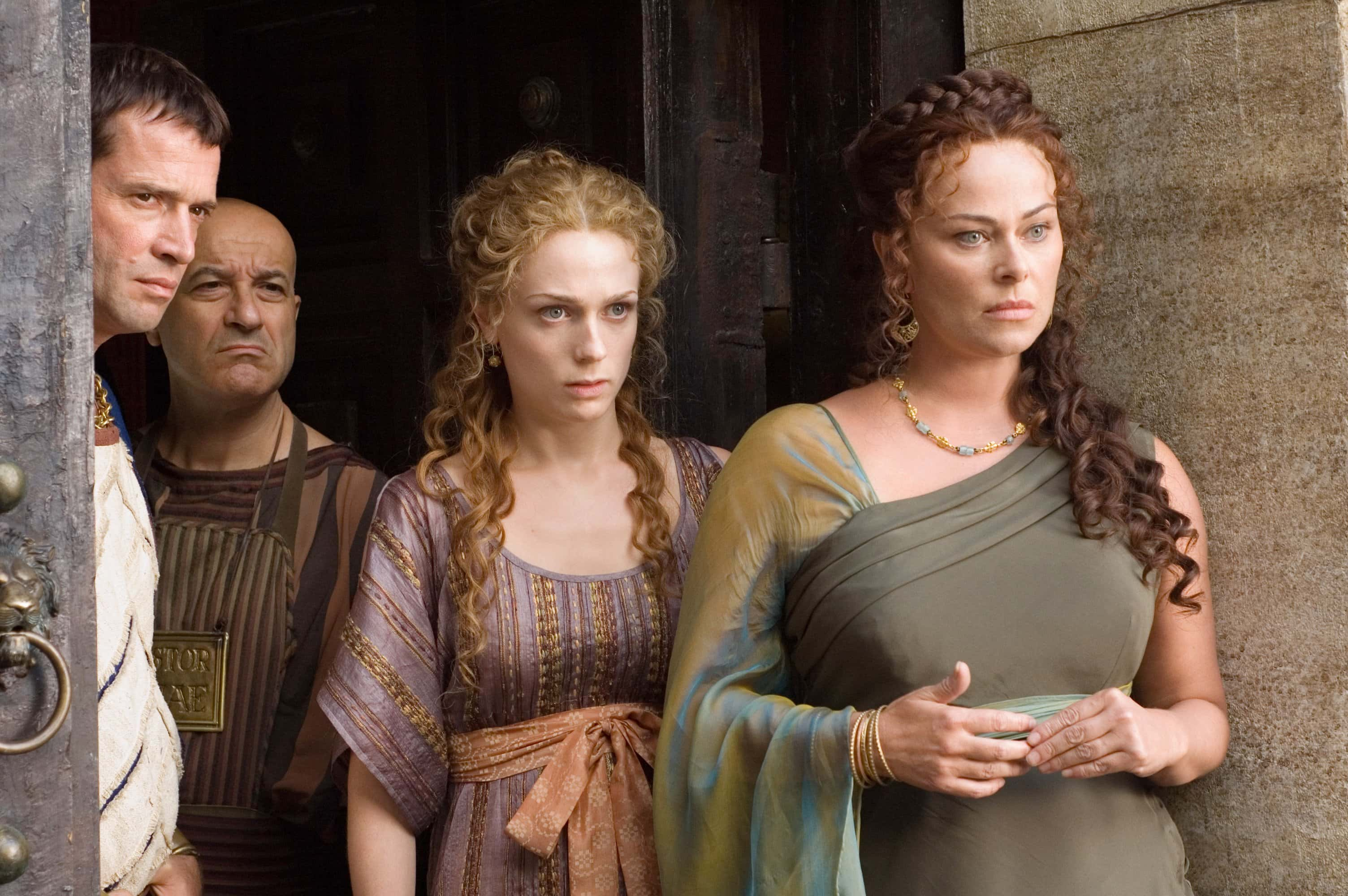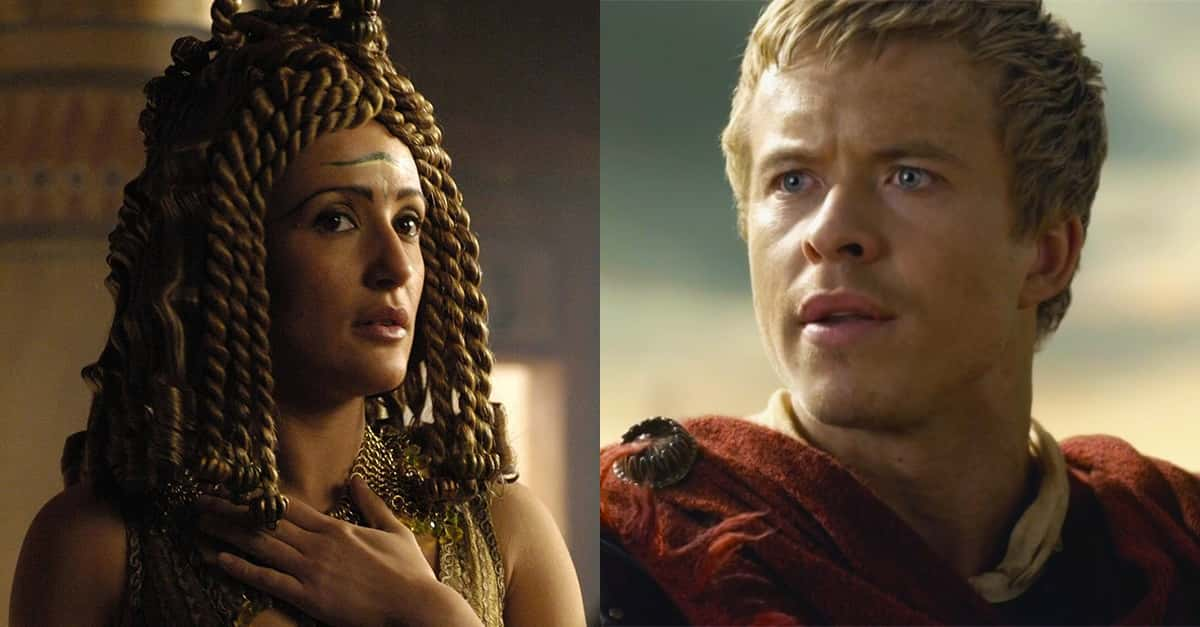Mark Antony is one of the most well-known figures in the history of the Ancient Rome. Rubbing shoulders with Julius Caesar and Cleopatra, Antony spent centuries being romanticized or vilified. But who really was this man? These 43 facts will hopefully shed more light on the person behind the legend.
Mark Antony Facts
43. Who?
The name ‘Mark Antony’ is a completely Anglicized version of Antony’s real name: Marcus Antonius. We call him Mark Antony for the same reason why Gnaeus Pompeius Magnus and Gaius Octavius Thurinus are called Pompey and Octavian, respectively: because it’s less of a mouthful, and they’re not around to make us pronounce their names properly.
42. Witness to History
Antony was the son of Marcus Antonius Creticus, who was named after Antony’s grandfather. Grandpa Antonius had been a noted orator who had been murdered on the orders of Roman general Gaius Marius during his conflict with another Roman leader named Lucius Cornelius Sulla. Antony was a baby in Rome when Sulla marched on it in 83 BC, not knowing the role he would later play in Caesar’s own march on Rome years later.
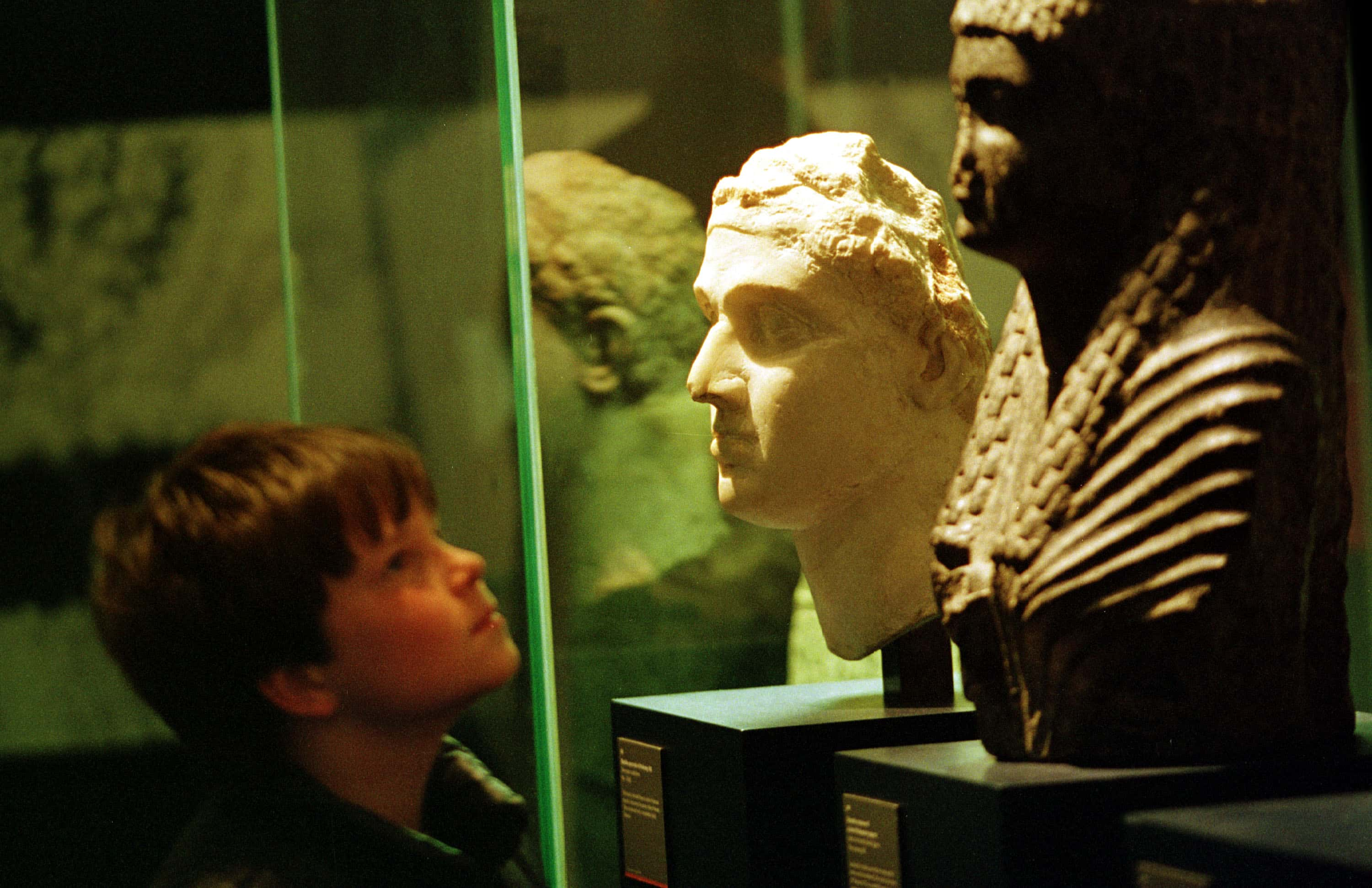
41. Related to Greatness
Antony’s mother was Julia Antonia, whom Plutarch described as one of the “most nobly born and admirable women of her time.” She was also a distant cousin of Julius Caesar. Caesar disliked her husband, but he felt obligated to further the career of Julia’s son.
40. History of a Villain
Mark Antony’s life was documented by several figures, including Cicero and Plutarch. However, it’s worth knowing that anyone writing about Antony would be doing so in an Empire which had made a public enemy out of Antony. As a result, many of the facts which we can get from their histories must be taken with a grain of salt.
39. Early Days
According to Plutarch, Mark Antony’s teen years involved a lot of booze and girls. Antony was said to wander the streets of Rome with his friends and take part in gambling, drinking, and love affairs. Reportedly, by the age of 20, he had acquired so many debts that he fled his home city to travel abroad as he studied philosophy. This approach to his early years has been replicated by many university students to this day.
38. Shining Example
While he wasn’t as brilliant as Julius Caesar, Antony was unquestionably a talented military commander. His career began in Syria at the age of 23, and three years later, he was promoted to cavalry commander. He kept this command under Aulus Gabinus from 57 to 54 BC.
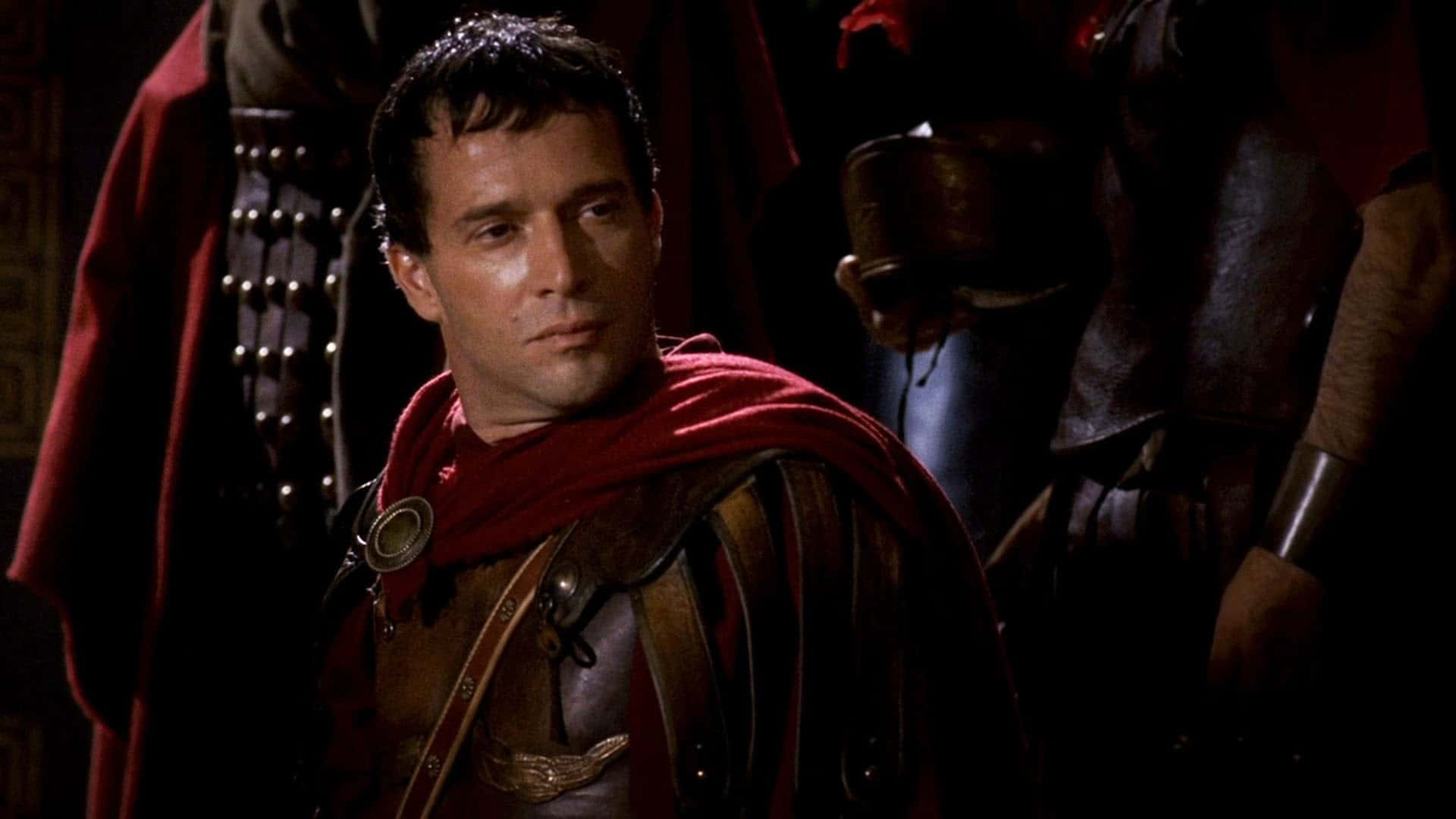 YouTube
YouTube
37. Deadbeat Dad
Antony was technically named after his father and grandfather, but you might have noticed that Antony’s father had the name "Creticus" as well. This was, in fact, a mocking name given to Antonius Sr. for his disgraceful behavior. In 74 BC, Antonius was given the command to clean up the piracy of the Mediterranean. Instead, Antonius attacked the island of Crete, whose populace made an alliance with the pirates and utterly defeated Antonius. The name Creticus, which means “conqueror of Crete” was given to Antonius in mockery of his disastrous failure. While Plutarch praised Antonius for his generous and friendly personality, most historians have nothing but harsh words for Antonius.

36. Enemy For Life
After the death of Antony’s father, Julia Antonia remarried to Publius Cornelius Lentulus Sura. Despite his high status and family connections, Sura was constantly in debt because of his costly standard of living. Unfortunately, he became involved in a conspiracy—known as the Second Catilinarian Conspiracy—to depose the leadership of Marcus Tullius Cicero. The conspiracy failed, and Cicero ordered Sura to be executed. Cicero feuded with the Antony clan for the rest of their lives.
Second Catilinarian Conspiracy
35. I’ll See You Again
While Mark Antony was campaigning in Egypt, he encountered the 14-year-old daughter of the Egyptian King Ptolemy XII. She would go on to be Cleopatra of Egypt, but at the time, these two had no idea how intertwined their lives—and deaths—would become.

History's most fascinating stories and darkest secrets, delivered to your inbox daily.
34. Friends Share
As a young man, Antony found himself an ally for life in Publius Clodius Pulcher, a Roman politician. Both men were enemies of Cicero, so that was a good basis for their friendship. Interestingly Antony would later go on to marry Pulcher’s second wife after Pulcher had been killed by his political enemies. It wouldn’t be the first time that Antony would take up with the widow of an ally.
33. It’s All About Who You Know
Under Pulcher’s direction, Antony became a freelancer, floating along looking for higher positions and opportunities. Pulcher himself had a benefactor named Marcus Licinius Crassus. In 60 BC, Crassus formed the First Triumvirate between himself and two of Rome’s best generals of the day: Pompey and Julius Caesar. They carved up the power and territories of Rome between them, effectively bypassing the Senate in terms of power. This proved the key to Antony’s success.
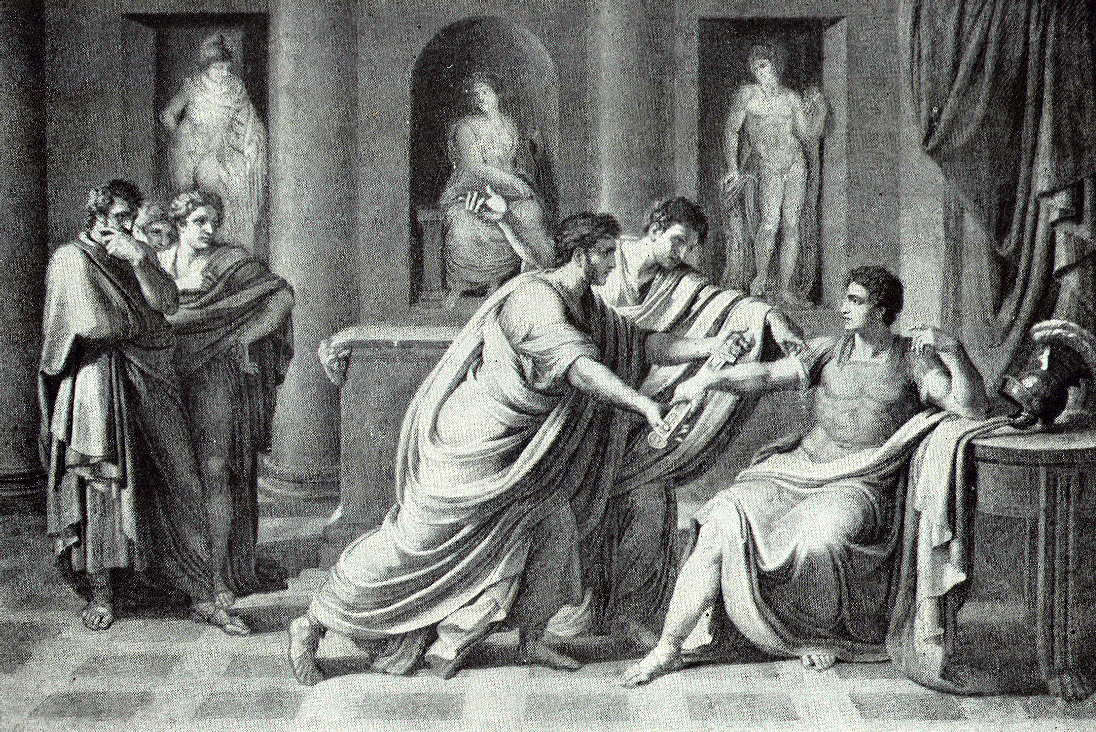 Heritage-history
Heritage-history
First Triumvirate
32. And Caesar Said “Join Me”
Pulcher had a positive relationship with Caesar, and this led Antony to becoming a part of Caesar’s military staff in 54 BC, just in time for Caesar’s conquest of Gaul, later known as France. It seems that Antony did a good job because a year later, Caesar sent Antony back to Rome and got him elected as a public official, beginning his political career.
31. Call it the Ancient Audubon Society
After the wars in Gaul were done, Caesar and Antony went back to Rome. With Caesar holding the sacred office of Pontifex Maximus (basically being the head of the Roman religion), Antony was promoted to the College of Augurs. This office was responsible for attempt to figure out the wills of the gods by studying the flights of birds. As crazy as it sounds, this office was very important back in the day, and gave Antony a powerful position under Caesar’s wing.
30. Terrific Track Record
During Caesar’s wars in Gaul, Antony is recorded as having held high command in Caesar’s army throughout the war. This includes the Battle of Alesia, which was one of Caesar’s crowning achievements. Antony commanded Caesar’s cavalry during the engagement, and was later promoted to Legate, giving him command of two legions in Caesar’s army—around 7,500 men. Later, during the civil war between Caesar and Pompey, Antony was Caesar’s second-in-command. At the Battle of Pharsalus, Antony is recorded as having overseen Caesar’s entire left-wing while Caesar commanded the right.
29. Petty Politics
Unfortunately, Antony’s talent on the battlefield didn’t translate into politics. When Caesar left for Egypt in 47 BC to put Cleopatra on the throne (and in his bed), Antony was left behind to govern Italy. However, he destroyed his popularity by getting onto the wrong side of a law which would have canceled all outstanding debts. Antony was against it, partly because he was convinced that the man who proposed the law, Publius Dolabella, was sleeping with his wife, Antonia. Caesar was forced to return to Rome within the year to settle the disorder that Antony had aggravated instead of resolved.
28. The Bromance Break-up
Caesar and Antony’s relationship deteriorated as they clashed repeatedly in the political world. Caesar wanted to name Dolabella to a high position in the Senate, but Antony used every trick in the book to block Dolabella’s promotion. Caesar finally took him out of Rome to serve as one of his generals while Antony was stripped of all positions and lived in Rome as a private citizen, presumably sulking while Caesar went off with their colleagues to finish up the civil war abroad. The two later reconciled just before Caesar’s death.
27. Four, Five, Who Can Keep Count Anyway?
The number of wives that Mark Antony had in his life is a disputed number. He may or may not have married a woman named Fadia, who was the daughter of a wealthy commoner. His first confirmed marriage was to his cousin Antonia. After he divorced her in 47 BC, he married Fulvia, who had previously married two of Antony’s friends before their deaths. After Fulvia’s death in 40 BC, Antony married Octavia later that year. His final wife was Cleopatra, whom Antony married while he was still married to Octavia.
26. Et Tu, Marcus?
It’s debatable how much Antony knew about Caesar’s assassination. Some speculate that Antony was aware of the plot but did nothing to either stop it or support it. Others say that Antony found out, tried to warn Caesar, but failed to reach him in time. A third theory insists that he remained oblivious of the plot, accompanying Caesar to the Senate meeting. He was distracted before he could join Caesar and was unable to stop the senators from murdering Caesar.
25. The Great Escape
When Caesar was assassinated, Antony rightly feared for his own life, and he fled Rome. To escape undetected, Antony dressed up like a slave, so he wouldn’t be recognized. He only returned to Rome when he made a deal with Caesar’s assassins.
24. Let’s Burn This Mother Down!
However, Antony proved to be more loyal to Caesar than people would have guessed. At Caesar’s funeral, Antony gave such a moving speech that the crowd who heard it began a riot, burning down the houses of Brutus and Cassius, the senators who had led the assassination of Caesar. The speech was later paraphrased and dramatized by Shakespeare in his play about the events.
23. There Must Be a Mistake Here…
In the aftermath of Caesar’s death, Antony took charge of all his former allies and followers and read out Caesar’s will. However, while Antony was given some bequests, Caesar had named his great-nephew, Octavian, as his successor. Antony didn’t quite agree with his former friend’s wishes and tried to amass power and support to keep himself as Caesar’s successor.
22. You Again?!
When Octavian arrived in Rome to claim his inheritance, Antony was reluctant to just hand over everything to this punk kid who wasn’t even 20 years old yet. Antony’s enemy, Cicero, decided to play the two against each other by launching a series of speeches against Antony. He raged that Antony was a threat to Rome and that Octavian was the golden boy who would save Rome from Antony. Whether it was because of the speeches or not, Octavian drew men away from Antony to form his own forces.
21. You’re My Enemy! No, Wait, You’re My Friend!
Octavian and Antony’s rivalry predictably turned violent, egged on by Cicero and those senators who hated and feared the Caesarian factions. In 43 BC, Octavian’s forces defeated Antony’s at the Battle of Mutina. With Antony on the run, the Senate decided they didn’t need Octavian anymore and tried to assign his troops to Brutus, one of Caesar’s assassins. However, Octavian’s troops were all Caesarian veterans and refused to serve one of Caesar’s killers, and Octavian decided that maybe Antony was better off as an ally than an enemy. After presumably asking him if there were no hard feelings, the two of them formed the Second Triumvirate with another of Caesar’s former allies, Marcus Lepidus.

20. On the Warpath
The Second Triumvirate carved up the western half of the Empire, even as Caesar’s assassins, Brutus and Cassius, fled east to take control of Greece and the rest of Rome’s eastern territory. Antony took control of Gaul and together with Octavian and Lepidus, issued thousands of proscriptions against his enemies, which declared them to be outlawed, and sentenced to death.

19. In Caesar We Trust
As a result of these purges of Rome, the Senate was persuaded to deify Julius Caesar. Mark Antony was confirmed as his high priest, because why not at this point?
18. Like Hercules, But Real
Surprisingly, we have no actual idea what Mark Antony looked like. Octavian, later Augustus, made sure that his enemy was never captured in marble or paint during his lifetime, and all the busts that are said to be him cannot be fully confirmed. All we know is that he had a “bold and masculine look, which is found in the statues and portraits of Hercules”. And this is coming from Plutarch, who didn’t hesitate to insult Antony, so we can only imagine what a good-looking man he must have been.
17. The Lion’s Share
Octavian and Mark Antony then attacked and defeated Brutus and Cassius. In the aftermath of their victory, the Second Triumvirate re-divided the Roman territories between them. Antony kept control of Gaul and also got the entire eastern half of Rome’s territory. Octavian took charge of Italy and the west, minus Gaul, while Lepidus was stuck with just Africa—the province, not the continent. It was a rough deal for poor Lepidus.
16. Lap of Luxury
Living it up with his new territory, Antony proved his competence as an administrator by never failing to turn down a good bribe. Despite complaints against Phasael and Herod, the two leaders of Judea, Antony turned a blind eye after he got a substantial gift from the two brothers. It was around this time that he began a relationship with Cleopatra, who had fled to Egypt in the aftermath of Caesar’s assassination.
15. Family Can’t Be Helped
While Antony was securing his position out east, his fiery wife, Fulvia, and his brother, Lucius Antonius, were causing trouble for Octavian. Fulvia even raised an army against Octavian when he divorced her daughter, though other theories state that she was stirring the pot to bring her wayward husband away from Cleopatra’s bed back to Rome. Octavian defeated Lucius and Fulvia, using the commotion as an excuse to take Gaul away from the troops loyal to Antony while Fulvia fled with her children to Greece.
14. How Convenient…
Antony's wife Fulvia did Antony a favor by dying in 40 BC, leaving Antony free to marry Octavian’s sister, Octavia, that very same year as part of a deal to keep the peace.
13. Could Have Been Better…
Antony’s luck on the battlefield ran out when he invaded Parthia with a combined Roman/Egyptian army of 200,000 men in 36 BC—Crassus could have told him not to invade Parthia. After a long campaign, Antony was forced to retreat, fighting the elusive Parthians for every step backward. He lost around 40% of his forces with little to show for it.
12. Shouldn’t have Slept Around
Octavian took advantage of Antony’s sleeping around with Cleopatra to slander him in Rome to make himself look better—Lepidus, by this point, was gone, bringing the Triumvirate to an end. The fact that Antony was cheating on Octavian’s sister made it even more personal to Octavian.
11. BFFs
Despite his reputation for hedonism leading him into trouble, Mark Antony initially made himself beloved amongst the ordinary troops with his love of simple pleasures. According to Plutarch’s writing, Antony would eat amongst the common soldiers, be their wingman in love affairs, and have a sense of humor when they joked around. We can only imagine the haughty looks Caesar must have given him from across the tents while adjusting his laurel wreath.
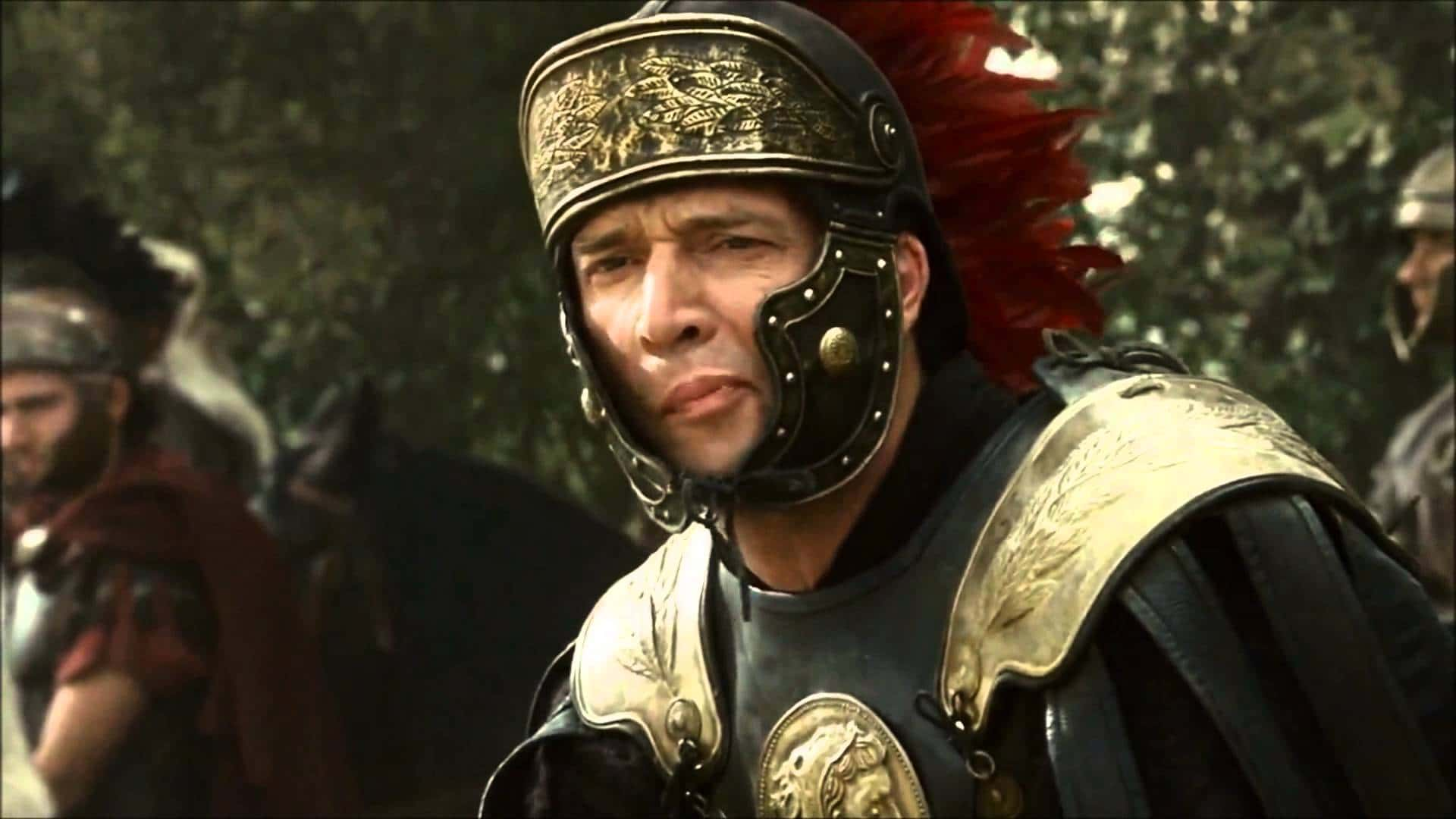 You tube
You tube
10. The Propaganda War
From 33 BC through to 32 BC, Antony and Octavian began throwing shade at each other from their respective corners in the most epic diss battle of the ancient world. Antony declared that Caesar’s son by Cleopatra, Caesarion, was Julius Caesar’s true heir, and accused Octavian of forging the papers which made him Caesar’s heir. Octavian fired back by declaring that Antony was guilty of treason and starting the war with Parthia without permission of the Senate.
9. What a Hypocrite
One of the last campaigns that Antony and Octavian had collaborated on was the defeat of Sextus Pompey, the son of Caesar’s friend-turned-enemy General Pompey. Sextus had raided Roman shipping from his base on Sicily until he was defeated, but it wasn’t until 35 BC when he was captured by Antony and executed without trial. Octavian used this execution against Antony later on, conveniently forgetting that he himself had declared Sextus Pompey an outlaw.
8. For Money or Love?
While the romantic view is that Mark Antony fell head over heels with the beautiful Cleopatra, several historians have argued for a more cynical assessment. Antony may have merely seen that Cleopatra was one of the wealthiest people in the known world and having her by his side would give him the kind of power to rival Octavian.
7. Don’t Believe Everything You Hear
After the disastrous Battle at Actium, Mark Antony and Cleopatra returned to Egypt. In 30 BC, after a series of battles against Octavian’s forces, Antony heard a rumor that Cleopatra was dead, and he stabbed himself in his despair. In an awkward turn of events, Cleopatra wasn’t, in fact, dead, but according to the romantic telling of history, Antony lived long enough to die in Cleopatra’s arms. Cleopatra herself would poison herself soon after. No wonder Shakespeare was drawn to their story.
6. Think of the Children!
While Antony and Cleopatra had escaped Octavian’s wrath, their children weren’t so lucky. Julius Caesar’s son by Cleopatra was killed, along with Antony’s oldest son by Cleopatra. The younger children were sent to live with Antony’s wife, Octavia, and her own children, in what would have been the most uncomfortable reality show in history if the Romans had invented trashy television.
5. Nobody Left to Object
With Antony’s death, Octavian was free to take sole control of Rome, declaring his new name to be Augustus. The Roman Empire would officially begin, with Augustus also incorporating Egypt within its dominion.
4. His Own Worst Enemy
Despite all of Octavian’s efforts, the man who one-upped him on souring Rome’s views of Mark Antony was Antony himself. Preferring to stay in Alexandria with Cleopatra, Antony began distributing kingdoms to his children by her. These actions, known as the Donations of Alexandria, were the nail in the coffin for Antony.
3. Hold My Beer, Octy
When Octavian and Mark Antony headed out east to avenge Caesar’s death by bringing the battle to Brutus and Cassius, Antony reportedly took the lead in the campaign, while Octavian spent one of the battles being sick in his tent. Antony’s leadership led to the defeats of both Brutus and Cassius in two separate battles, and they both took their own lives. In the aftermath, Antony was lenient to the Romans who surrendered to him, while Octavian was less merciful, even beheading Brutus’ corpse in the most spiteful act of petty vengeance I’ve ever read about.
2. Now That’s Revenge
Forming the Second Triumvirate was beneficial to Antony for a lot of reasons. One of them was that he got to hunt down his hated enemy, Cicero. According to legend, Antony had Cicero’s head and hands chopped off and nailed on the Rostra in the Forum Romanum. This didn’t go far enough for Antony’s wife, Fulvia. She allegedly pulled Cicero’s tongue and stabbed it with her hairpin.
1. One Out of Three Ain’t Bad
Through his daughters by Octavia, Mark Antony was actually an ancestor of three Roman emperors. They were Claudius, Caligula, and Nero. So, one good emperor and two murderous nutcases. Still better than Augustus’s track record, so good on you, Antony.


